- Atlanta Technical College, a unit of the Technical College System of Georgia, located in the city of Atlanta, is an accredited institution of higher education that provides affordable lifelong learning opportunities, associate degrees, diplomas, technical certificates of credit, customized business and industry training, continuing education and other learning services using state-of-the-art technology. The integration of academics and applied career preparation to enhance student learning is essential in meeting the workforce demands and economic development needs of the people, businesses, and communities of Fulton and Clayton Counties. The strength of Atlanta rests in its citizens whose skills, values, and ethics make them a productive and competitive force. The men and women of Atlanta should be productive workers if the city and its environs are to attract new business and industry and strengthen existing companies that have enabled Atlanta to become the commercial hub of the entire Southeast. Atlanta Technical College believes that the positive results of a literate and technically competent citizenry will accelerate Atlanta's continued appeal to existing, expanding, new, and emerging businesses and industries and will in turn contribute to the economic and social growth of individuals living and working in and around Atlanta.
School Highlights
Atlanta Technical College serves 4,829 students (27% of students are full-time).
The college's student:teacher ratio of 15:1 is lower than the state community college average of 18:1.
Minority enrollment is 96% of the student body (majority Black), which is more than the state average of 61%.
Quick Stats (2025)
- Enrollment: 4,829 students
- In-state tuition: $2,740
- Out-state tuition: $4,876
- Student:teacher ratio: 15:1
- Minority enrollment: 96%
- Source: Integrated Postsecondary Education Data System (IPEDS)
Top Rankings
Atlanta Technical College ranks among the top 20% of public schools in Georgia for:
Category
Attribute
School Overview
The teacher population of 321 teachers has stayed relatively flat over five years.
Atlanta Technical College
(GA) Community College Avg.
Carnegie Classification
Associate's Colleges: High Career & Technical-Mixed Traditional/Nontraditional
Associates--Public Rural-serving Medium
Institution Level
At least 2 but less than 4 years
At least 2 but less than 4 years
Institution Control
Public
Public
Total Faculty
321 staff
209 staff
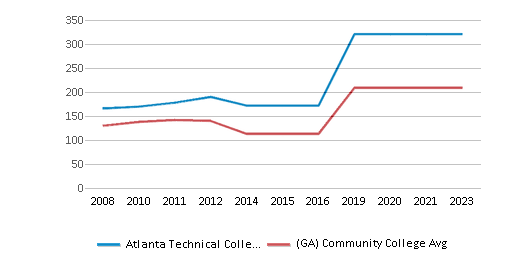
School Calendar
Student Body
The student population of Atlanta Technical College has grown by 27% over five years.
The student:teacher ratio of 15:1 has increased from 9:1 over five years.
The Atlanta Technical College diversity score of 0.27 is less than the state average of 0.71. The school's diversity has grown by 21% over five years.
Total Enrollment
4,829 students
2,242 students
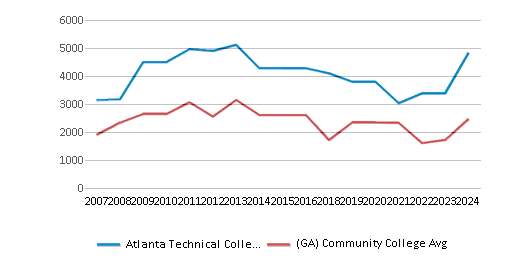
Student : Teacher Ratio
15:1
18:1
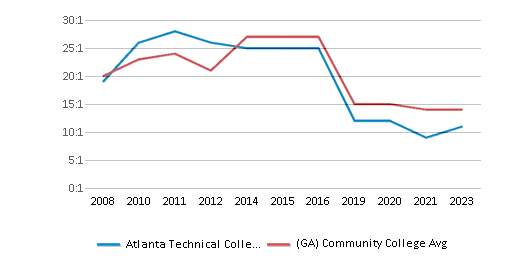
# Full-Time Students
1,281 students
882 students
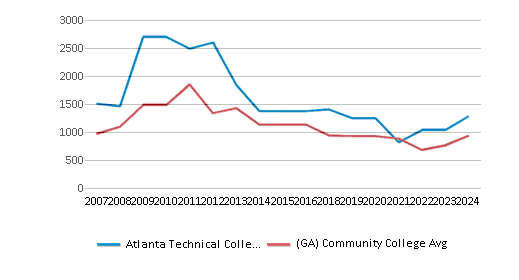
# Part-Time Students
3,548 students
1,722 students
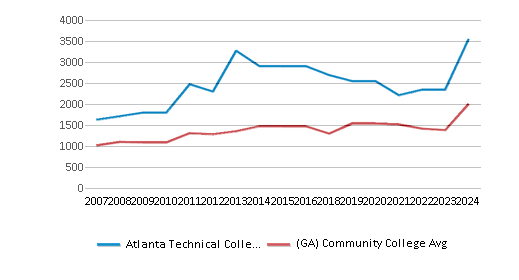
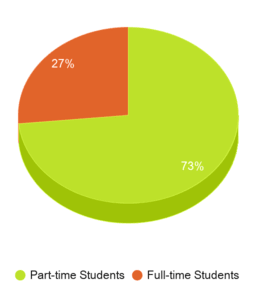
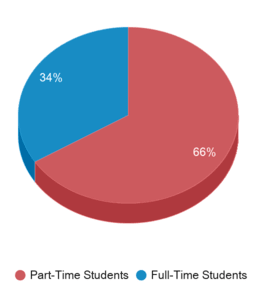
# Enrollment Undergraduate
482 students
299 students
# Full-Time Undergraduate Students
1,281 students
929 students
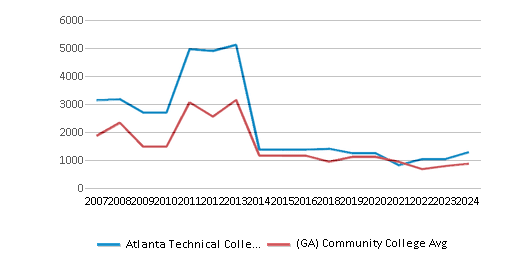
# Full-Time Graduate Students
n/a
87 students
# Part-Time Undergraduate Students
3,548 students
1,891 students
# Part-Time Graduate Students
n/a
53 students
Total Dormitory Capacity
n/a
654 students
% American Indian/Alaskan
n/a
n/a
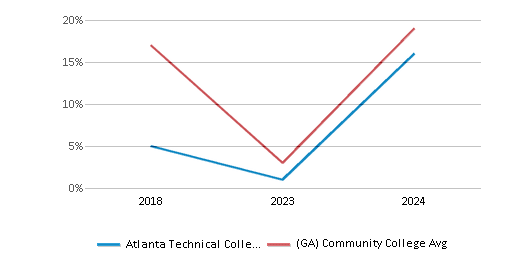
% Asian
1%
4%
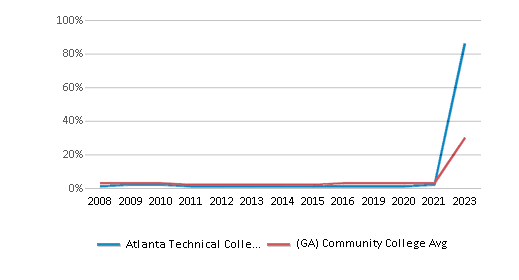
% Hispanic
6%
10%
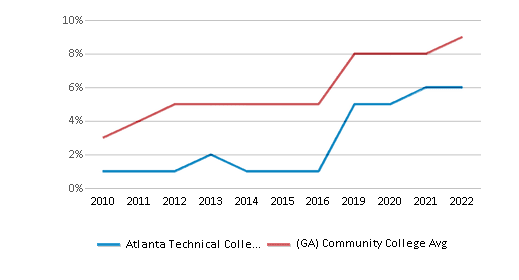
% Black
85%
35%
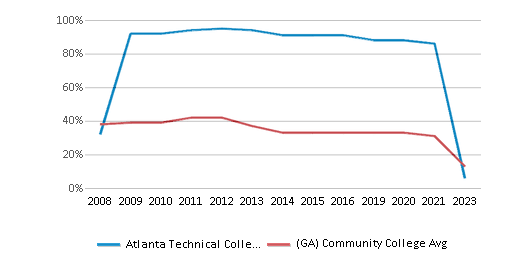
% White
4%
39%
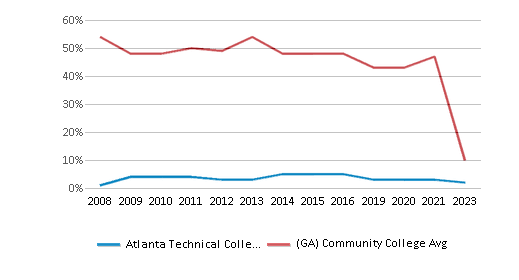
% Hawaiian
n/a
1%
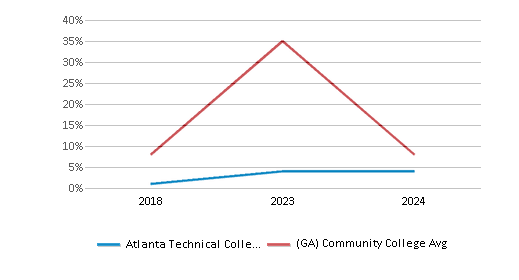
% Two or more races
3%
3%
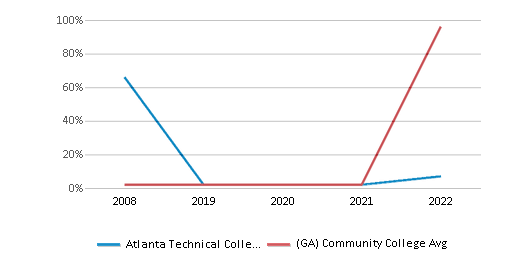
% Non Resident races
1%
1%
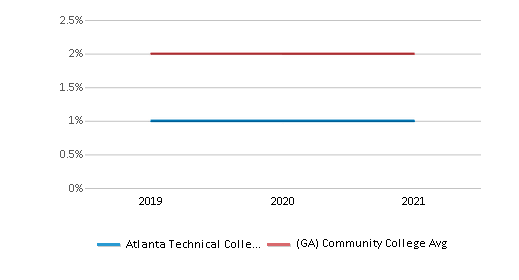
% Unknown races
n/a
7%
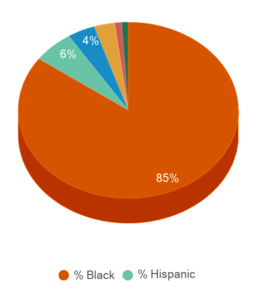
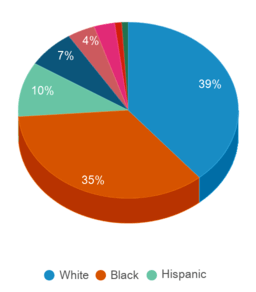
Diversity Score
0.27
0.71
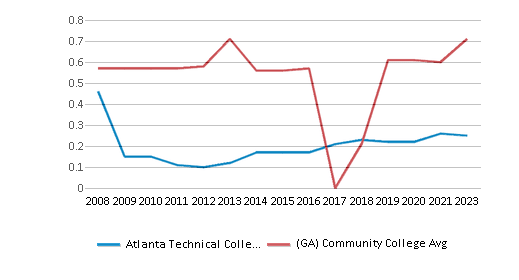
College Completion Rate (Students who graduate in less than 4 years)
0.3691%
0.4279%
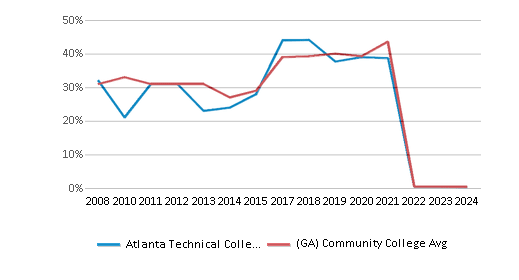
College Completion Rate (Students who graduate in 4 years or more than 4 years)
n/a
0.2368%
Average Graduate Earnings (10 Years)
$25,200
$29,500
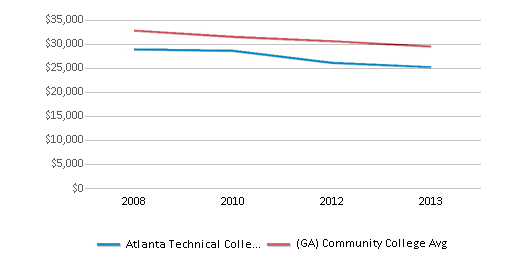
Tuition and Acceptance Rate
The public in-state tuition of $2,740 is less than the state average of $3,120. The in-state tuition has declined by 13% over four years.
The public out-state tuition of $4,876 is less than the state average of $6,995. The out-state tuition has declined by 12% over four years.
In-State Tuition Fees
$2,740
$3,120
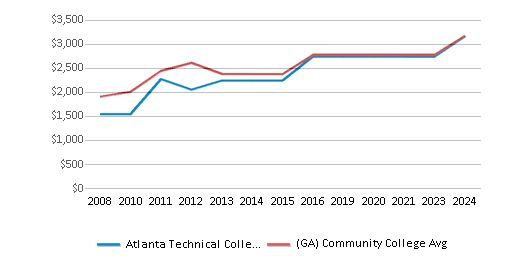
Out-State Tuition Fees
$4,876
$6,995
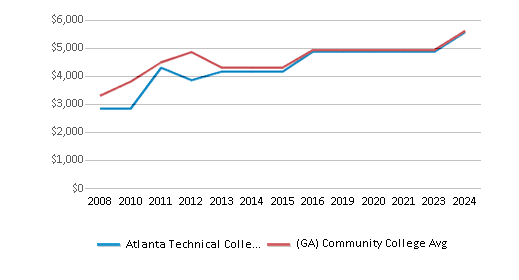
% Students Receiving Some Financial Aid
93%
93%
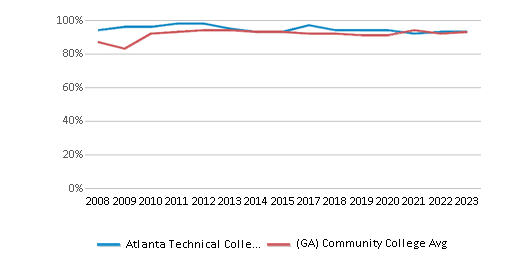
Median Debt for Graduates
$10,908
$12,139
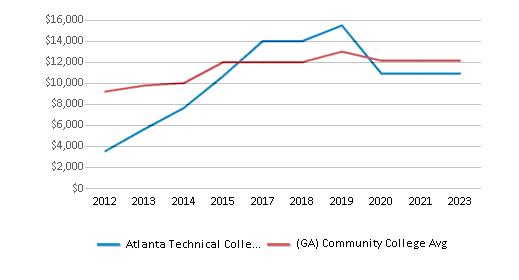
Median Debt for Dropouts
$5,549
$5,500
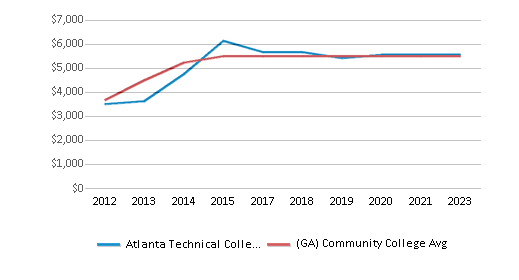
Acceptance Rate
n/a
75%
SAT Reading
n/a
465
SAT Math
n/a
450
SAT Writing
n/a
465
ACT Composite
n/a
18
ACT English
n/a
18
ACT Math
n/a
18
ACT Writing
n/a
7
Source: 2024 (or latest year available) Integrated Postsecondary Education Data System (IPEDS) , School Administrators
Frequently Asked Questions
How much does Atlanta Technical College cost?
Atlanta Technical College's tuition is approximately $2,740 for In-State students and $4,876 for Out-State students.
What schools are Atlanta Technical College often compared to?
Atlanta Technical Collegeis often viewed alongside schools like Atlanta Metropolitan State College by visitors of our site.
What is Atlanta Technical College's ranking?
Atlanta Technical College ranks among the top 20% of community college in Georgia for: Average community college minority breakdown.
In what neighborhood is Atlanta Technical College located?
Atlanta Technical College is located in the Sylvan Hills neighborhood of Atlanta, GA. There are 1 other community '.college.' located in Sylvan Hills.
Recent Articles

Obtaining Your Bachelor's Degree at a Community College
Explore the evolving landscape of community colleges offering bachelor's degrees, addressing affordability, accessibility, and workforce needs.

A to Z of Community College Certificates and Courses
From business and healthcare to technology and skilled trades, the article showcases the breadth of options available to students seeking to enhance their knowledge, develop new skills, or pursue career advancement.

What is a Community College?
This comprehensive guide explains what a community college is, its history, and its role in higher education. It covers the types of programs offered, differences from four-year colleges, benefits of attending, and important considerations for prospective students, providing valuable insights for those exploring educational options.









